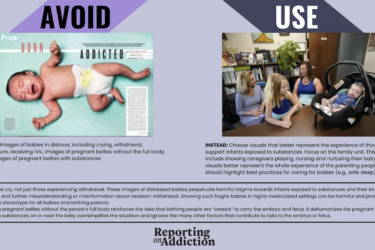 In September, Yen Duong, Ph.D., had just started work for North Carolina Health News when Hurricane Florence was churning up the east coast.
In September, Yen Duong, Ph.D., had just started work for North Carolina Health News when Hurricane Florence was churning up the east coast.
Duong’s assignment was to cover health care in Charlotte. Being three hours inland from the coast turned out to be somewhat fortuitous for Duong who had just started her second journalism job after a summer at the Raleigh News & Observer as a mass media fellow for the American Association for the Advancement of Science.
The heavy rain did not dissuade Atrium Health, one of the state’s largest health systems, from hosting a fundraising event featuring Patrick J. Kennedy, a mental health advocate and a former congressman from Rhode Island. While many journalists were busy writing about flooding and other storm-related stories, Duong interviewed Kennedy for half an hour.
After NCHN published her Kennedy Q&A, Duong’s editor, Rose Hoban, suggested she follow up regarding a report that Kennedy’s nonprofit had issued in October about mental health parity. “The last 10 years I’ve been fighting to get more enforcement of the law,” Kennedy had told Duong. To measure disparities in coverage and access for mental health for inpatient and outpatient services, Kennedy founded the Kennedy Forum and an associated website, Parity Track.
As Duong explains in a new How I Did It for AHCJ, the Kennedy Forum and three like-minded organizations issued a report card showing how each state was complying with the federal and state parity laws, meaning how well insurers and health systems were treating mental health on par with physical health. Duong’s article about how North Carolina was one of 32 states to get an F on the report card was the first article in her series on parity. For any journalist covering mental health or wanting to dig into why so many states score so low on the important measures tracked by the Kennedy Forum and Parity Track, Duong’s series may serve as an excellent guide.
The report, “Evaluating State Mental Health and Addiction Parity Statutes,” assigned failing grades to 32 states for statutes designed to ensure equal access to mental health and addiction treatment. The Forum and the Kennedy-Satcher Center for Mental Health Equity in the Satcher Health Leadership Institute at Morehouse School of Medicine worked with the Carter Center and Well Being Trust to produce the report.
October was significant because that’s when the forum marked the 10th anniversary of the Mental Health Parity and Addiction Equity Act, legislation Kennedy supported before leaving Congress in 2011 after serving for 16 years.
The first story that Duong wrote about the report served as an introduction to parity and why North Carolina got an F. From there, Duong wrote four additional articles that offer a thorough look at how to cover the issue in every state. They include:







